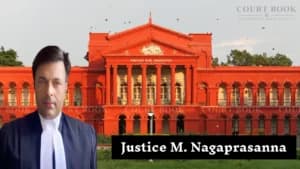The Rajasthan High Court recently dismissed a petition filed by a law student who challenged certain parts of his university examination question paper. The student alleged that the exam question, which referred to the Supreme Court's judgment in the Ayodhya Ram Janmbhoomi–Babri Masjid dispute, was offensive and hurt religious sentiments.
The student argued that the comments made in the exam question were provocative enough to attract Section 295A of the Indian Penal Code, which deals with deliberate and malicious acts intended to outrage religious feelings.
Read also:- Rajasthan HC Grants Final Bail Extension to Asaram Bapu Till August 12 in 2013 Rape Case
However, the bench of Justice Anoop Kumar Dhand rejected this claim and strongly upheld the principles of academic freedom and free expression. The Court emphasized that:
"Fair criticism of a verdict is permissible."
Justice Dhand noted that any academic or personal opinion by a student, teacher, or scholar on a legal judgment, even one involving religious or sensitive issues, cannot be seen as an attack on any religion.
"If a citizen writes an essay or critique on a verdict of the Court, reflecting personal interpretation, the same must be viewed as a positive and constructive exercise in legal reasoning and critical analysis, so long as it does not amount to contempt of Court."
The High Court stated that invoking Section 295A IPC is not valid unless there is clear evidence of deliberate and malicious intent to hurt religious feelings. Mere disagreement or discomfort with academic content is not enough.
Justice Dhand further remarked:
"The academic freedom and the autonomy of educational institutions should not be curtailed and compromised merely on the basis that subjective language has alleged to have hurt sentiments, unless there is a clear breach of law or the language used therein is contemptuous, offensive or defamatory."
Read also:- Kerala High Court: WhatsApp Notice Not Valid for Vehicle Confiscation Under CGST Act Post-COVID
It was also noted that no other student, apart from the petitioner, had raised any concern regarding the exam content. The Court concluded that the question posed in the exam simply reflected the examiner’s opinion and did not aim to provoke or insult.
"The Right to Freedom of Speech and Expression guaranteed under Article 19(1)(a) of the Constitution of India is a cornerstone of democracy, allowing the citizens to express their views and opinions freely... Whatever question was asked in the examination paper, was merely an expression of view of the Examiner, but in any case, the same has not hurt the sentiments of any other students except the petitioner. Law must be governed by reasons and not by sentiments."














